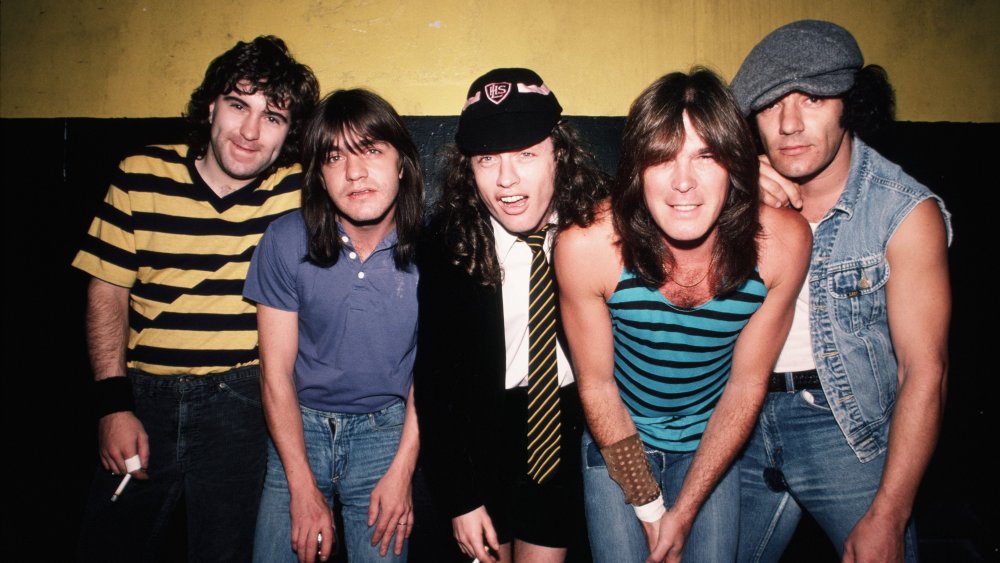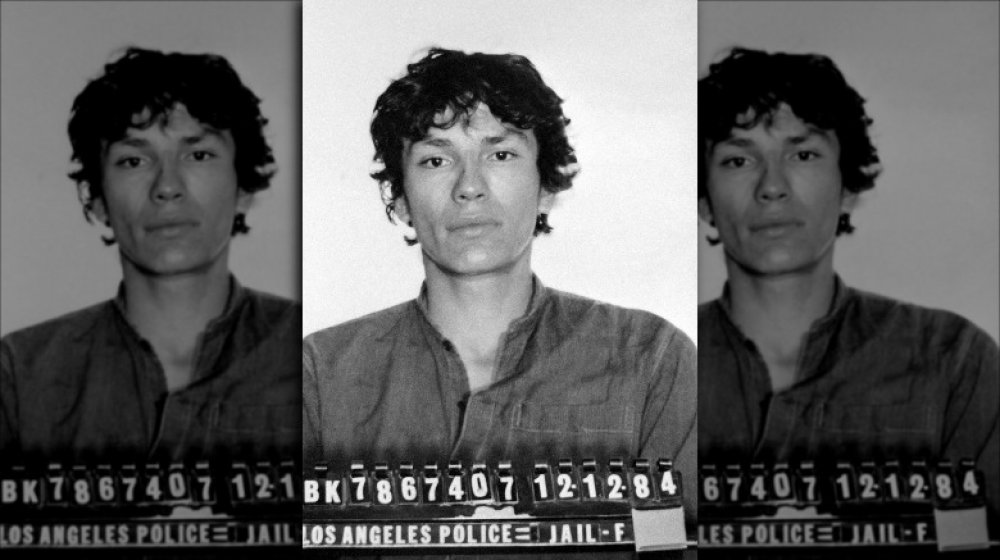Here's How AC/DC Was Once Linked To A Serial Killer
In a 1985 interview with Entertainment Tonight, posted on YouTube, AC/DC singer Angus Young was asked to comment on the band's name.
"Some people say that stands for Anti-Christ, Devil's Child. Does it?"
"It came from the back of my sister's sewing machine."
AC/DC is a band that's had its fair share of ups and downs, but they've always managed to bounce back and keep doing what they do best. The tragic loss of their lead vocalist Bon Scott in 1980, for instance, was dealt with by tracking down a singer Scott was known to have admired — Brian Johnson from the British band Geordie — who then joined AC/DC to co-write the 25x platinum album Back in Black, a tribute to Scott and now one of the best-selling albums of all time.
That AC/DC would have to contend with the fallout of the band members' hard-partying lifestyles was never in doubt (though to be honest, they have been comparatively resilient when compared to their contemporaries). But one of the strangest incidents to occur during the band's long and singular career occurred in the early 1980s, when an unexpected connection between the band and a notorious L. A. County serial killer put the band on the front pages for all the wrong reasons, and led to them being tarred as devil worshipers.
The Night Stalker: an AC/DC fan?
Richard Ramirez was an American serial killer who committed a string of killings and assaults across the West Coast of America in 1984 and 1985, according to Biography. Originally known as the "Valley Intruder," while his attacks were localized in the L.A. County area, he became known as the "Night Stalker" as recurrent details of his horrific crimes began to make it into the press.
Ramirez had a troubled adolescence, including epileptic fits that were said to be the result of an early head injury, as well as the trauma of having witnessed his older cousin, with whom he was close, murder his own wife right in front of him. This same cousin was also responsible for sharing with Ramirez graphic stories of his time torturing military prisoners in Vietnam, and showing Ramirez pictures to prove it. Ramirez began to develop an interest in Satanism, with evidence of Satanic rituals found at the scenes of his crimes. One victim, who survived the ordeal, claimed that Ramirez had forced her to declare her love of Satan during the attack.
Halfway through his killing spree, Ramirez left a vital piece of evidence at one of his crime scenes that became headline news. The item, according to Ultimate Classic Guitar, was a hat bearing the symbol of AC/DC, whose album Highway To Hell, released just five years earlier, bore an image of lead guitarist Angus Young with devil horns and a tail.
AC/DC: A Satanist band?
Things only got worse for the members of AC/DC when Ramirez's childhood friend, Ray Garcia, was in magazines such as People declaring the killer's long-held love for the heavy rock band. As well as the hat, another detail had caught the media's eye: the band's Highway To Hell-era track, "Night Prowler," whose title closely resembled the moniker the press had given to the killer. Lyrics featured a character entering the homes of victims while they sleep, mirroring the actions of the crime spree's perpetrator.
The band tried to distance themselves from the impact that such negative headlines were having on their popularity by explaining the comparative innocence of the song's lyrics and of the band's aesthetic and meaning in general. In the Entertainment Tonight interview, Angus Young claims that the song in question actually references an anecdote about a man who was stealing underwear off people's laundry lines. The band gave conflicting explanations, however. According to Ultimate Classic Rock, Angus's brother and bandmate Malcolm Young attempted to explain away the link between the song and Ramirez by saying, "That song is not called 'Night Stalker,' it's called 'Night Prowler' — and it's about things you used to do when you are a kid, like sneaking into a girlfriend's bedroom when her parents were asleep."
As AC/DC was drawn into the ongoing Satanic Panic, gigs were canceled, but the band ultimately weathered the storm.


